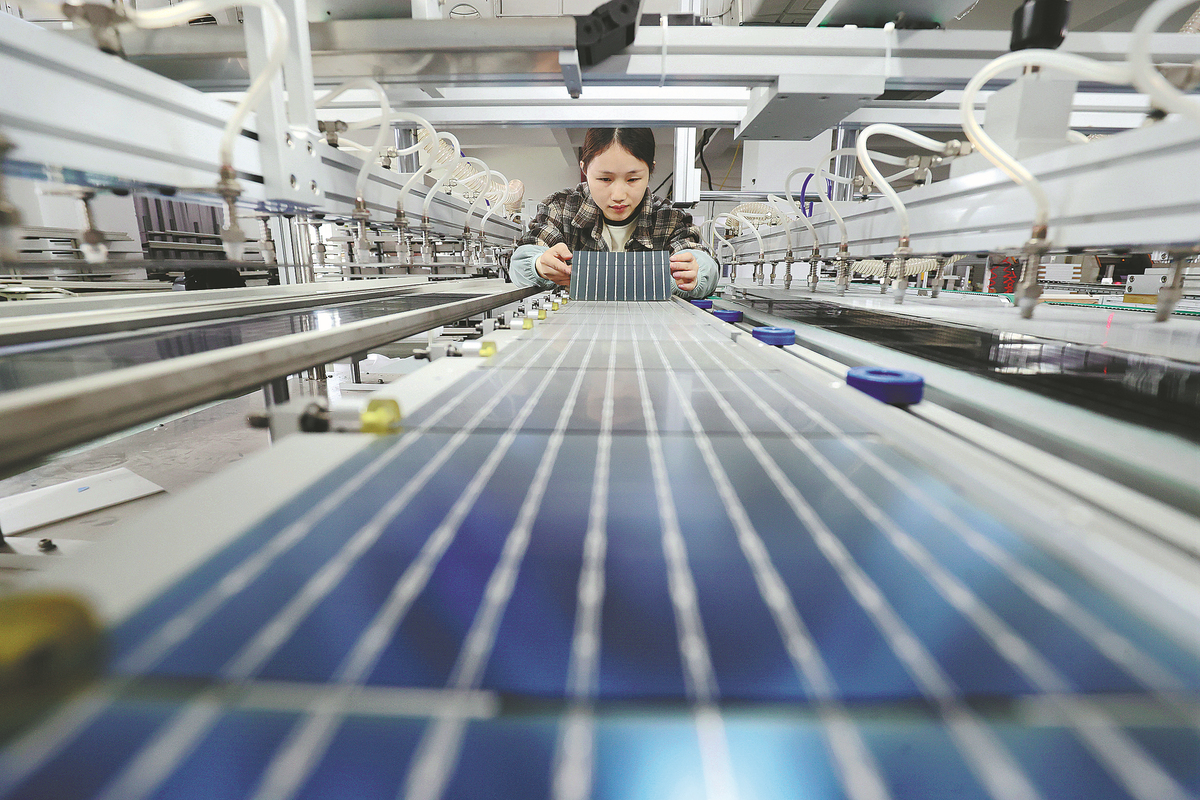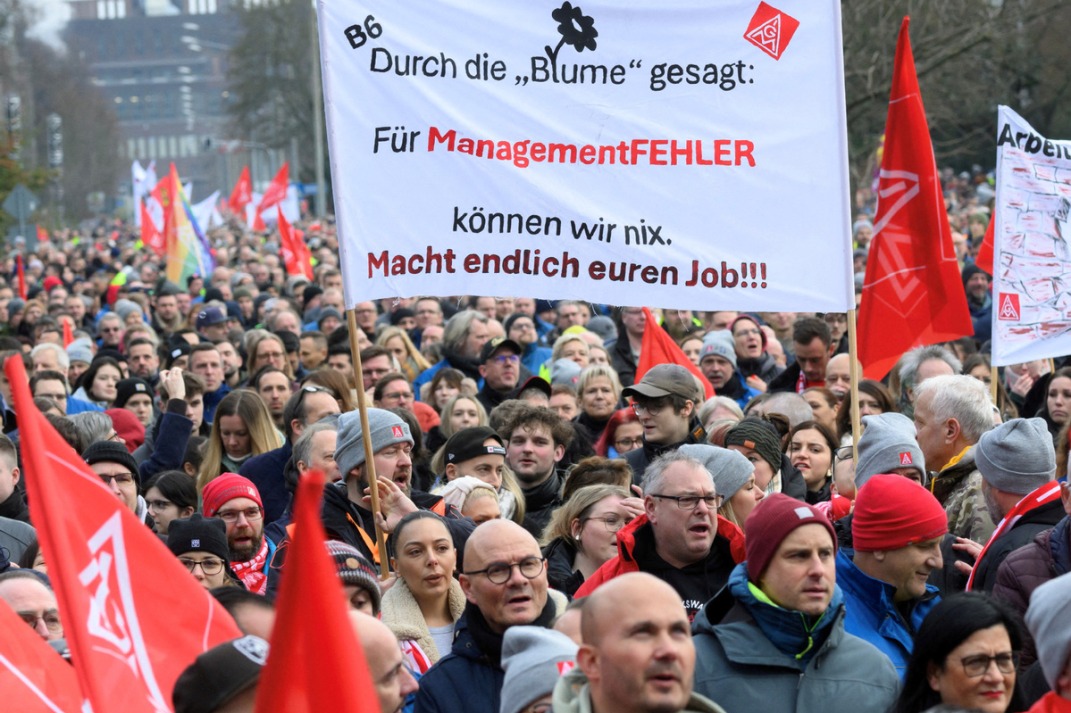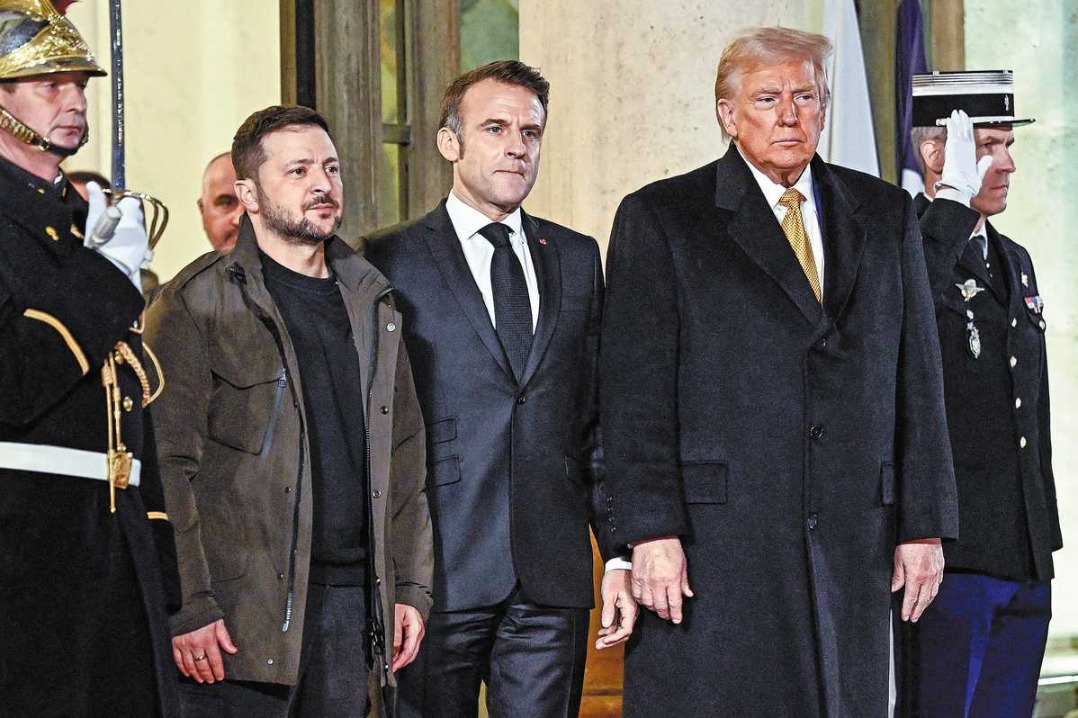Importers voice tariff concerns
Question effect new round of duties will have on consumers, supply chains


The Biden administration's new and continuing tariffs on China are opposed by some US industry groups, which fear they could raise already high prices for American consumers and hamper supply chains.
"Tariffs are regressive taxes that are paid by US importers and US manufacturers and ultimately passed along to US consumers," said Steve Lamar, president and CEO of the American Apparel & Footwear Association, in a statement. "At a time when hardworking American families are struggling with inflation, continued tariffs on consumer necessities are entirely unwelcome."
The fresh levies announced Tuesday are on $18 billion worth of Chinese imports, including electric vehicles, lithium batteries, photovoltaic cells, critical minerals, semiconductors, steel and aluminum products.
The latest tariffs were the result of a 193-page, four-year review of Section 301 tariffs, released by the Office of the United States Trade Representative on Tuesday. Section 301 is part of the US Trade Act of 1974.
The duties are in addition to those on more than $300 billion worth of Chinese goods imposed during the Trump administration.
"Over the last five years, US businesses and consumers have paid more than $215 billion in higher tariffs for a failed experiment in trade policy," said Blake Harden, vice-president of international trade for the Retail Industry Leaders Association, in a statement.
"Leading retailers have worked hard to bolster their supply chains to be more agile and resilient in the face of uncertain economic conditions, and shield customers from feeling the impact of these high tariffs; but after carrying the weight of Section 301 tariffs for over five years, one thing is abundantly clear: tariffs are taxes ultimately paid by American businesses and consumers — not China," he said.
"Broad-based tariffs are not strategic and will impede US economic growth — ultimately hamstringing American businesses trying to compete globally and negatively impacting the paycheck of American workers," Harden said.
The tariffs are "unfortunate for American consumers, who are still feeling the pain of inflation eating into their annual household earnings", said Yael Ossowski, deputy director of the Consumer Choice Center, a non-partisan advocacy group, to The Washington Times. "This is going to add price inflation across the board all in the name of ‘tough guy' election-year politics."
The US Labor Department's Bureau of Labor Statistics announced on Wednesday that the consumer price index increased 3.4 percent in April year-over-year, after rising 3.5 percent in March.
Ryan Hass at the Brookings Institution wrote last month that the trade war with China "came at a heavy cost to the American economy, with job losses, and a regressive tax on consumers from higher import costs.
At a briefing at the Chinese embassy in Washington on Tuesday, spokesperson Liu Pengju said that the new tariffs will significantly drive up the cost of imported goods and inflict more losses on American companies and consumers.
He said that the World Trade Organization (WTO) "has drawn a clear conclusion that the Section 301 tariffs violate WTO rules and international law".
"As one of the founders of the WTO, the United States has not only failed to be a role model in complying with WTO rules, but taken the lead in breaching them," he added. "By so doing, the US can hardly embody the ‘fair competition' it champions, nor can it keep its credibility in the international community," Liu said.
US Senator Chuck Grassley, an Iowa Republican, expressed concern Tuesday over the tariffs' impact on his Midwestern farming state, which is an exporter of agricultural products.
"I'm for free trade, because Iowa manufactures and does services, and does agriculture way beyond what we consume domestically, and we must be exporting," Grassley told AgriTalk, a radio show and podcast. "I think that this is going to invite retaliation by China, and it's possible retaliation could be (against) agriculture," he said.
A 2021 working paper, "Trade Protectionism and US Manufacturing Employment" by Chunding Li, Jing Wang and John Whalley found that protectionist measures reduce jobs in manufacturing.
The economists' models showed that in a scenario of unilateral US action against Chinese imports, tariff rates of 30 percent, 45 percent and 60 percent would reduce American manufacturing employment by 1.3 percent, 1.8 percent and 2.15 percent, respectively.
In a bilateral trade standoff scenario with China, tariffs of 30 percent, 45 percent and 60 percent would reduce US manufacturing jobs by 2.6 percent, 3.3 percent and 3.8 percent, respectively. That would translate into between approximately 300,000 to 850,000 jobs lost, the economists found.
"This suggests that the US wanting to save manufacturing employment through trade protection measures may be unachievable," the paper concluded.
"Most economists view tariffs as a bad idea because they prevent a country from reaping the benefits of specialization, disrupt the movement of goods and services, and lead to a misallocation of resources," wrote Ryan Sweet. chief US economist at Oxford Economics, CNN reported.
Agencies contributed to this story.
































